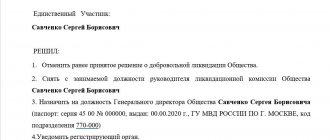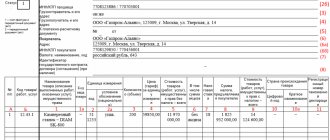In what cases can a real estate transaction be challenged?
1. GENERAL PROVISIONS
1.1. This Privacy Policy regarding the processing of personal data of users of the site https://www.dvitex.ru/ (hereinafter referred to as the Privacy Policy) was developed and applied by Legal LLC, OGRN 1107746800490, Moscow, per. Golutvinsky 1st, building 3-5, office 4-1 (hereinafter referred to as the Operator) in accordance with paragraphs. 2 hours 1 tbsp. 18.1 of the Federal Law of July 27, 2006 No. 152-FZ “On Personal Data” (hereinafter referred to as the Law on Personal Data).
1.2. This Privacy Policy defines the Operator’s policy regarding the processing of personal data accepted for processing, the procedure and conditions for the processing of personal data of individuals who have transferred their personal data for processing to the Operator (hereinafter referred to as personal data subjects) with and without the use of automation tools, establishes procedures aimed at preventing violations of the legislation of the Russian Federation, eliminating the consequences of such violations related to the processing of personal data.
1.3. The privacy policy was developed to ensure the protection of the rights and freedoms of personal data subjects when processing their personal data, as well as to establish the responsibility of the Operator's officials who have access to the personal data of personal data subjects for failure to comply with the requirements and standards governing the processing of personal data.
1.4. Personal data of the Personal Data Subject is any information relating to a directly or indirectly identified or identifiable individual.
1.5. The Operator processes the following personal data of Users:
- Full Name;
- E-mail address;
- Phone number;
- other data necessary for the Operator when providing services to Users to ensure the functioning of the Site.
1.6. The Operator processes personal data of Personal Data Subjects for the following purposes:
- providing the opportunity for feedback from Operator Specialists on User requests;
- providing the possibility of online payment for services ordered on the Site;
- ensuring the fulfillment of the Operator’s obligations to Users;
- for market research purposes;
- informing the Personal Data Subject about promotions, competitions, special offers, new services, discounts, advertising materials and other services, as well as receiving commercial or advertising information and free products, participating in exhibitions or events, performing marketing research and notification of all special initiatives for clients;
- statistical purposes;
- for other purposes, if the corresponding actions of the Operator do not contradict the current legislation, the activities of the Operator, and the consent of the Personal Data Subject has been obtained for the said processing.
1.7. The operator processes personal data of personal data subjects by performing any action (operation) or set of actions (operations) performed using automation tools or without the use of such means, including the following:
- collection;
- record;
- systematization;
- accumulation;
- storage;
- clarification (update, change);
- extraction;
- usage;
- transmission (distribution, provision, access);
- depersonalization;
- blocking;
- deletion;
- destruction.
2. PRINCIPLES FOR PROCESSING PERSONAL DATA
2.1. When processing personal data, the Operator is guided by the following principles:
- legality and justice;
- confidentiality;
- timeliness and reliability of obtaining the consent of the subject of personal data for the processing of personal data;
- processing only personal data that meets the purposes of their processing;
- compliance of the content and volume of processed personal data with the stated purposes of processing. The personal data processed should not be redundant in relation to the stated purposes of their processing;
- the inadmissibility of combining databases containing personal data, the processing of which is carried out for purposes incompatible with each other;
- storing personal data in a form that allows identifying the subject of personal data for no longer than required for the purposes of processing personal data;
- destruction or depersonalization of personal data to achieve the goals, their processing or in case of loss of the need to achieve these goals.
2.2. The processing of personal data by the Operator is carried out in compliance with the principles and rules provided for:
- Federal Law of July 27, 2006 No. 152-FZ “On Personal Data”;
- This Privacy Policy;
- Universal Declaration of Human Rights 1948;
- International Covenant on Civil and Political Rights 1966;
- European Convention for the Protection of Human Rights and Fundamental Freedoms, 1950;
- The provisions of the Convention of the Commonwealth of Independent States on Human Rights and Fundamental Freedoms (Minsk, 1995), ratified by the Russian Federation on August 11, 1998;
- The provisions of the Okinawa Charter for the Global Information Society, adopted on July 22, 2000;
- Decree of the Government of the Russian Federation dated November 1, 2012 No. 1119 “On approval of requirements for the protection of personal data during their processing in personal data information systems”;
- Order of the FSTEC of Russia dated February 18, 2013 No. 21 “On approval of the composition and content of organizational and technical measures to ensure the security of personal data when processed in personal data information systems”;
- Other regulatory and non-regulatory legal acts governing the processing of personal data.
3. OBTAINING PERSONAL DATA.
3.1. Personal data of personal data subjects is obtained by the Operator:
- by providing the subject with personal data when registering on the Site, when submitting applications, applications, questionnaires, forms, filling out registration forms on the Operator’s website or sending by e-mail, messages by telephone to the Operator’s support service;
- by other means that do not contradict the legislation of the Russian Federation and the requirements of international legislation on the protection of personal data.
3.2. The Operator receives and begins processing the Subject’s personal data from the moment of receiving his consent.
3.3. Consent to the processing of personal data is given by the subject of personal data from the moment of starting to use the site, including by indicating about, through the performance of implied actions by the subject of personal data.
3.4. The subject of personal data may at any time withdraw his consent to the processing of personal data. To revoke consent to the processing of personal data, you must submit a corresponding application to the Operator via available means of communication. At the same time, the Operator must stop processing them or ensure the termination of such processing and, if the preservation of personal data is no longer required for the purposes of their processing, destroy personal data or ensure their destruction within a period not exceeding 30 (Thirty) days from the date of receipt of the specified review .
3.5. If the Personal Data Subject withdraws consent to the processing of personal data, the Operator has the right to continue processing personal data without the consent of the Personal Data Subject only if there are grounds specified in the Personal Data Law.
3.6. The subject of personal data has the right to choose what personal data will be provided to him. However, in case of incomplete provision of the necessary data, the Operator does not guarantee the subject’s ability to use all services and products of the Site, to use all services of the Site.
3.7. The personal data subject can view, update or delete any personal data included in his profile at any time. To do this, he can edit his profile online in his personal account or send an email to
4. PROCESSING PROCEDURE FOR PERSONAL DATA
4.1. The operator takes technical, organizational and legal measures to ensure the protection of personal data from unauthorized or accidental access, destruction, modification, blocking, copying, distribution, as well as from other unlawful actions.
4.2. When processing personal data, the Operator applies legal, organizational and technical measures to ensure the security of personal data in accordance with Art. 19 of the Federal Law “On Personal Data”, Decree of the Government of the Russian Federation dated November 1, 2012 No. 1119 “On approval of requirements for the protection of personal data during their processing in personal data information systems”, Methodology for determining current threats to the security of personal data during their processing in personal information systems data approved by the FSTEC of the Russian Federation on February 14, 2008, Methodological recommendations for ensuring the security of personal data using crypto-means when processing them in personal data information systems using automation tools approved by the FSB of the Russian Federation on February 21, 2008 No. 149/54-144.
4.3. To authorize access to the Site, a Login and Password are used. The subject of personal data is responsible for the safety of this information. The subject of personal data does not have the right to transfer his own Login and Password to third parties, and is also obliged to take measures to ensure their confidentiality.
4.4. When transferring personal data, the Operator complies with the following requirements:
- does not disclose the personal data of the subject of personal data to a third party without expressed consent, except in cases where this is necessary for the purposes of processing personal data, preventing a threat to the life and health of the subject of personal data, as well as in cases established by law;
- does not disclose personal data for commercial purposes without the expressed consent of the subject of personal data;
- informs persons receiving personal data that this data can only be used for the purposes for which it was communicated, and requires these persons to take appropriate measures to protect personal data. Persons receiving the User’s personal data are required to maintain confidentiality;
- allows access to personal data only to authorized persons, and these persons must have the right to receive only those personal data that are necessary to perform specific functions.
4.5. The Operator has the right to disclose any information collected about the User of this Site if disclosure is necessary in connection with an investigation or complaint regarding unlawful use of the Site, or to identify (identify) a User who may violate or interfere with the rights of the Site Administration or the rights of other Site Users, as well as to comply with the provisions of current legislation or court decisions, ensure compliance with the terms of this Agreement, protect the rights or safety of other Users and any third parties.
4.6. Third parties independently determine the list of other persons (their employees) who have direct access to such personal data and (or) process it. The list of these persons, as well as the procedure for access and/or processing of personal data by them, is approved by the internal documents of the Third Party.
4.7. The operator does not sell or provide personal data to third parties for marketing purposes not provided for in this Privacy Policy, without the express consent of the personal data subjects. The operator may combine anonymized data with other information received from third parties and use it to improve and personalize services, content and advertising.
4.8. Processing of personal data is carried out on the territory of the Russian Federation; cross-border transfer of personal data is not carried out. The operator reserves the right to choose any channels for transmitting information about personal data, as well as the content of the transmitted information.
4.9. Personal information collected online is stored by the Operator and/or service providers in databases protected by physical and electronic controls, access control technology and other appropriate security measures.
4.10. The personal data subject understands, confirms and agrees that the technical processing and transmission of information on the Operator’s Website may involve the transfer of data over various networks, including unencrypted communication channels on the Internet, which is never completely confidential and secure.
4.11. The personal data subject also understands that any messages and/or information sent through the Operator’s Server may be unauthorized read and/or intercepted by third parties.
5. FINAL PROVISIONS
5.1. In the event of any disputes or disagreements related to the implementation of these Rules, the Personal Data Subject and the Operator will make every effort to resolve them through negotiations between them. If disputes are not resolved through negotiations, disputes shall be resolved in the manner established by the current legislation of the Russian Federation.
5.2. This Privacy Policy comes into force for the Personal Data Subject from the moment he starts using the Operator’s Website and is valid for an indefinite period.
5.3. This Privacy Policy can be changed and/or supplemented by the Operator at any time during the validity period of the Rules at its discretion without the need to obtain the consent of the Personal Data Subject. All changes and/or additions are posted by the Operator in the appropriate section of the Site and come into force on the day of such posting. The subject of personal data undertakes to promptly and independently familiarize himself with all changes and/or additions. If the Personal Data Subject does not agree with the changes made, he is obliged to refuse access to the Site and stop using the materials and services of the Site.
Effect of illegal acts
The powers of authorities empowered to make appropriate decisions leads to an initial presumption of the legality of acts. All decisions made, unless they directly contradict legislative norms, are binding and legal. Recognition of an act as invalid occurs only in court. The effect of illegal acts in terms of violation of current legislation is divided into two groups:
- Obvious violations, which is expressed in direct non-compliance with general norms. An act is declared invalid by direct comparison of the text of the documents.
- Hidden. Disguised non-compliance with legal norms is more difficult to detect.
The effect of such a decision is manifested in a significant infringement of the legal rights of both citizens and companies. However, the degree of damage caused by the execution of an illegal decision should be distinguished. The harmfulness of a manager’s order to impose a fine is much lower than a ban on the employment of certain categories of citizens. Recognizing non-normative acts as invalid is a way to restore legal and social justice.
Consequences of invalidity
In case of invalidity, each party returns everything received under the transaction, and in case of impossibility, reimburses its cost (bilateral restitution). The law provides a number of explanations that are taken into account when declaring a contract invalid; the consequences are applied by the court after a decision on nullity is made in the following order:
- In the interests of a citizen who is incapacitated due to a mental disorder, a transaction is recognized by the court as valid if it was made for the benefit of this citizen (Clause 2 of Article 171 of the Civil Code of the Russian Federation).
- The capable party shall compensate the incapacitated party for any real damage incurred if the capable party knew about the incapacity of the other party if the transaction was declared invalid. Article 167 of the Civil Code of the Russian Federation establishes such a rule as an additional guarantee of protecting the rights of the incapacitated.
- The court has the right not to apply the consequences of declaring a contract voidable or void if their application contradicts the fundamentals of legal order or morality.
- The judge has the right to terminate the illegal transaction for the future.
- It is possible to recognize an agreement as partially void: the invalidity of a part of the contract does not entail the invalidity of its other parts, that is, recognition of a clause of the agreement as invalid will not entail the application of consequences for all other obligations arising from the agreement. The agreement will continue to operate as before, except for the invalid clause.
Examples of application of claims
Courts of general jurisdiction most often hear claims to invalidate contracts:
- in the real estate sector: purchase and sale, donation of shares - most often for tax evasion;
- loan, credit and pledge - attempts to withdraw part of the property from the common shared property, for example, upon divorce; agreements with microfinance organizations;
- committed through deception - reporting false information to an insurance company when insuring life and health;
- certain provisions of contracts that infringe on the rights of a citizen in comparison with those established by law.
Arbitration courts often consider cases of invalidation of:
- lease agreements;
- purchase and sale of property of a legal entity and interest-bearing loans in the process of bankruptcy or liquidation of legal entities;
- contracts concluded in violation of the provisions of Law No. 223-FZ, without complying with procurement procedures and posting information about the procurement, to the detriment of the interests of the legal entity;
- contracts concluded on behalf of a legal entity by representatives with limited powers;
- agreements on the assignment of claims.
According to official statistics from arbitration courts, a transaction is declared illegal in less than 50% of the cases considered in this category.
Pre-trial settlement
This process is necessary in order not to bring the issue to court, but to work through it in a working manner. A person’s ownership right may be challenged by the following authorities:
- individuals;
- organizations;
- administration;
- housing estates;
- country and garage cooperatives;
- departments of the State Property Committee and the Unified State Register.
The order of the pre-trial procedure depends on who acts as the initiator and author of the revocation of a person’s property rights.
The prospective plaintiff, before filing a claim in arbitration, is required to notify the potential defendant of his claims one month before the initiation of the case. In this case, the notification must indicate the reasons for the violation that need to be eliminated.
There are quite a lot of situations in which property rights are registered with an improper person. Very often, the actual property does not belong to the person in whose name the registration is registered . In the pre-trial procedure, these parties must attempt to restore legal possession of the property of one of the owners. You may also be interested in information about ownership, then follow the link.
Submitting an application
The law defines clear requirements for the form and procedure for filing a claim for invalidation of an act. A prerequisite is payment of the state fee. Its amount is 100 rubles for citizens, 200 rubles for organizations. A sample statement of claim to invalidate an act can be found on the Internet or taken from a lawyer. The document must contain:
- full name of the local self-government body, government authority or data of the official who issued the document;
- registration date, number;
- list of rights violated by the regulatory decision;
- legislative norms that the disputed document contradicts;
- requirement to declare a legal act illegal.
Time limits for consideration of a claim
Time limits for consideration of claims regarding invalidity of transactions:
- no more than 2 months - for courts of general jurisdiction (154 Code of Civil Procedure of the Russian Federation);
- no more than 6 months - for arbitration courts (152 Arbitration Procedure Code of the Russian Federation).
Within such a time frame, the case is considered by the court of first instance, including the time to prepare the case for trial and make a decision on the case. The legal process takes a long time for the following reasons:
- complexity and category of the case;
- the procedure for invalidating the contract established by the parties;
- the need to comply with judicial requests;
- expertise;
- grade;
- the need to attract witnesses.
When a contract is declared void
When the law mentions agreements that are declared invalid by a decision of the judicial authorities, we are not talking about void, but about voidable transactions: a closed list of grounds for declaring a transaction void is directly named in paragraph 2 of Chapter 9 of the Civil Code of the Russian Federation. Such agreements are not the basis for the emergence of civil rights and obligations, the establishment of which was intended by the participants. Invalidation in part (specific points) or in full occurs regardless of the court's decision.








